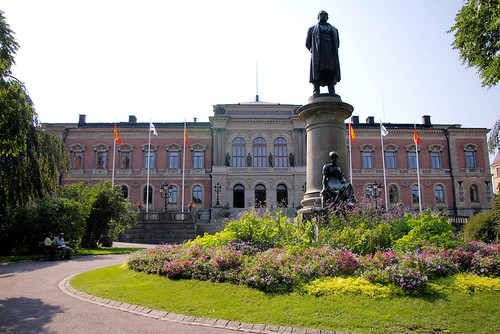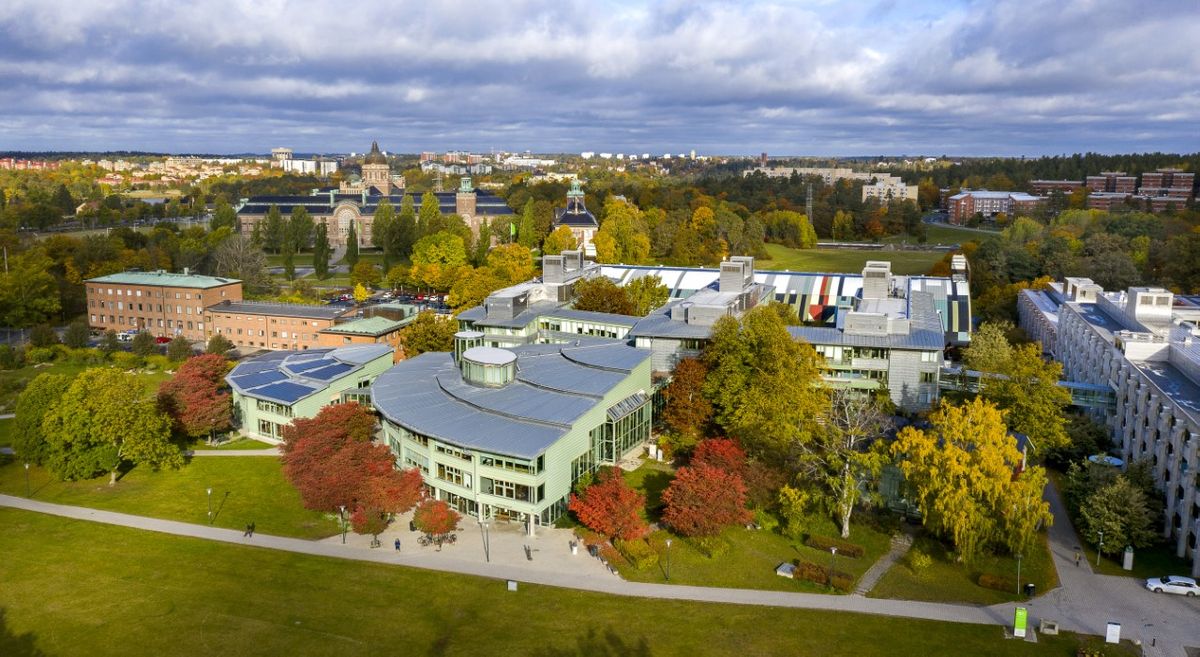Study In Sweden
Key Details
Personalized Study Abroad Counseling
Expert guidance tailored to help students choose programs that match their goals.
Scholarship and Financial Aid Assistance
Support in finding scholarships and aid to make studying abroad more affordable.
University Application Assistance
Comprehensive step-by-step support with university applications, deadlines, and document preparation for studying abroad.
Visa and Immigration Support
Expert guidance on student visa applications to help ensure a smooth transition for studying abroad.
Global University Partnerships
Gain access to a global network of top universities, offering diverse study abroad options for every field.
24/7 Support and Assistance
24/7 support for international students, offering assistance with questions or challenges during their study abroad experience.




Tuition Fees
Undergraduate and Postgraduate
For non-EU/EEA students, tuition fees range from SEK 80,000 to SEK 200,000 per year (approximately €7,500 to €19,000) depending on the university and program.
Scholarships
Various scholarships are available for international students, including the Swedish Institute Scholarships, university-specific scholarships, and private organization grants.
Living Costs
Accommodation
Accommodation costs range between SEK 3,500 and SEK 6,500 per month (approximately €325 to €600), depending on the location and type of accommodation.
Food and Groceries
Food and groceries cost approximately SEK 2,000 to SEK 3,000 per month (approximately €185 to €275).
Transport
Transport costs around SEK 500 to SEK 800 per month (approximately €45 to €75). Many cities offer student discounts on public transport.
Miscellaneous
Miscellaneous costs, including personal expenses, leisure, and study materials, are approximately SEK 1,000 to SEK 1,500 per month (approximately €95 to €140).
Total Estimated Living Costs
The total estimated living costs are between SEK 8,000 to SEK 12,000 per month (approximately €750 to €1,125).
Entry Requirements
Academic Qualifications
Completion of Higher Secondary Certificate (HSC) with good grades. Specific entry requirements vary by course and institution.
English Language Proficiency
Proof of English proficiency through tests like IELTS, TOEFL, or PTE Academic. Typically, an IELTS score of 6.5 or a TOEFL score of 90 is required.
Specific Program Requirements
Some programs may have additional requirements such as relevant work experience, a portfolio (for design courses), or specific subject prerequisites.
Academic Qualifications
Undergraduate
Completion of the Higher Secondary Certificate (HSC) with strong grades. For direct entry, some universities may require completion of a foundation course or equivalent.
Postgraduate
A Bachelor’s degree from a recognized institution with a GPA that meets the program’s requirements, usually a minimum of 2.5 to 3.0 out of 4.0.
Courses
There are plenty of courses to choose from in the United Kingdom. A wide range of subjects is taught in most universities.
Popular Courses
Art, Design, and Performing Arts
- Art, Performing Arts & Design
- Arts
- Cinematic and Photography
- Design Studies
- Drama
- Fashion
- Landscape Design
- Music
- Photography
Engineering
- Agricultural Engineering
- Biochemical Engineering
- Chemical Engineering
- Civil and Structural Engineering
- Electrical Engineering
- Environmental Engineering
- Mechanical Engineering
- Materials Science and Engineering
- Robotics
- Software Engineering
- Renewable Energy Engineering
- Aerospace Engineering
- Biomedical Engineering
- Computer Science and Engineering
- Petroleum Engineering
Science
- Biological Science
- Chemistry (Pure and Applied)
- Environmental Science
- Physics and Astronomy
- Geology
Business and Management
- Accounting
- Accounting & Finance
- Business & Management
- Business Studies
- Economics
- Economics & Econometrics
- Finance
- HR Management
- Management Studies
- Marketing
- MBA
Health and Medicine
- BSc Occupational Therapy
- Dentistry
- Health Studies
- Medicine
- Medicine & Dentistry
- MSc Occupational Therapy (pre-reg)
- Nursing
- Nutrition
- Pharmacology, Toxicology & Pharmacy
- Physiotherapy
- Veterinary
- Veterinary Science
Humanities and Social Sciences
- Anthropology
- Archaeology
- Communication & Media Studies
- Education Studies
- History
- Law
- Linguistics
- Politics & International Studies
- Psychology
- Social Work
- Sociology
Technology and Computing
- Computer Science
- Software Engineering
Other Specialized Fields
- Architecture
- Construction & Property Management
- Environmental Studies
- Human Resources
- Law
- Marketing
- Performing Arts
- Psychology
- Urban Studies
Coming Soon Courses
Visa Requirements
Non-EU/EEA students need to apply for a residence permit for studies. This requires:
- Proof of Acceptance: A confirmation of acceptance from a Swedish educational institution.
- Proof of Financial Means: Evidence that you can financially support yourself during your studies in Sweden.
- Comprehensive Health Insurance: Health coverage for the duration of your stay in Sweden.
Health Insurance
Non-EU/EEA students must have their own health insurance until they are registered in the Swedish population register and receive a personal identity number (personnummer).
Frequently Asked Questions
1. What destinations are available for international studies?
We offer several universities and schools in the following English-speaking and European countries:
- United Kingdom
- United States
- Ireland
- Denmark
- Sweden
2. What are the requirements for applying to these universities?
Requirements may vary by university and program, but typically include academic qualifications, language proficiency tests, and personal statements. Some countries may also require proof of financial support and health insurance.
3. How can I apply for a student visa?
You can apply for a student visa through the respective embassy or consulate of the country you are planning to study in, usually after receiving your university acceptance letter. Each country has its own visa process:
- UK: Tier 4 (General) Student Visa
- USA: F-1 Student Visa
- Iceland: D Visa for studies
- Denmark: Danish Student Visa
- Sweden: Swedish Student Visa
4. What support services are available for international students?
Most universities provide support services including orientation, counseling, academic advising, and assistance with housing and travel arrangements. Each country offers specific support for international students.
5. How do I finance my studies abroad?
You can finance your studies through personal savings, scholarships, grants, or student loans. Many universities also offer financial aid options for international students, including specific scholarships for students from certain countries.
Most popular destinations

Do you find On Point Study's overseas education procedures complicated?
At On Point Study, we know that the process of studying abroad can feel a bit overwhelming. That’s why we’re here to make things easier. From helping with applications to guiding you through visa requirements, we’ll be with you every step of the way. Our goal is to ensure your journey to international education is as smooth and stress-free as possible.
Find Your Counselor






